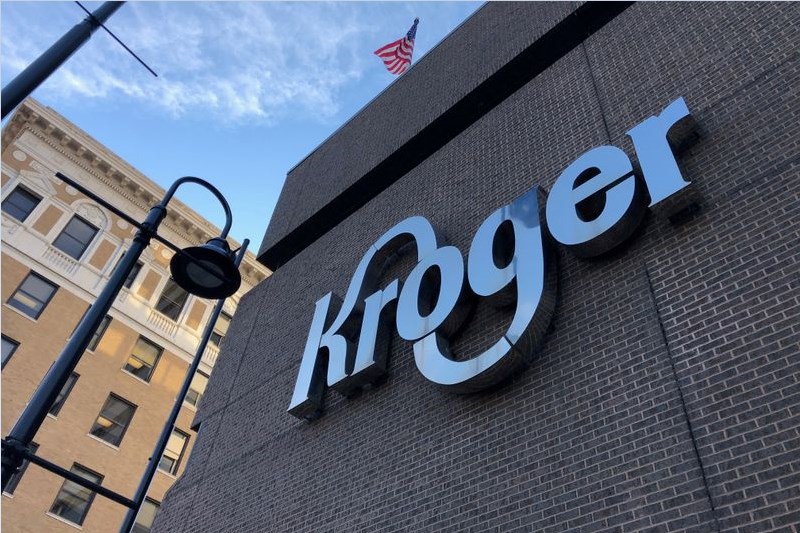This post was originally published on this site
https://i-invdn-com.investing.com/trkd-images/LYNXMPEJ5E0FO_L.jpg
Big-box retailers such as Kroger and Walmart (NYSE:WMT) have used their extensive nationwide operations to negotiate better deals with suppliers, which allowed them to keep prices substantially lower than competition and lure more people.
Kroger also profited from shoppers – including higher-income consumers looking for more economical options amid persistent inflation – preferring its store-label brands to pricier national brands.
The company’s gross margins increased 21 basis points in the quarter ended May, compared with a decrease of 65 basis points a year earlier, thanks to higher demand for its private brands Simple Truth and Home Chef, and lower supply chain costs.
Shares of the company, which is set to buy smaller rival Albertsons in a $25 billion deal, fell 3% in premarket trading after Kroger reaffirmed its annual forecasts and missed total net sales estimates by a small margin.
Kroger’s net sales rose to $45.17 billion in the reported quarter from $44.60 billion a year earlier, but fell short of analysts’ average estimate of $45.24 billion, according to IBES data from Refinitiv.
Excluding special items, Kroger earned $1.51 per share, beating estimates of $1.46 per share.
Kroger’s same-store sales, excluding fuel, rose 3.5%, compared with analysts’ average estimate of a 3.27% increase.

